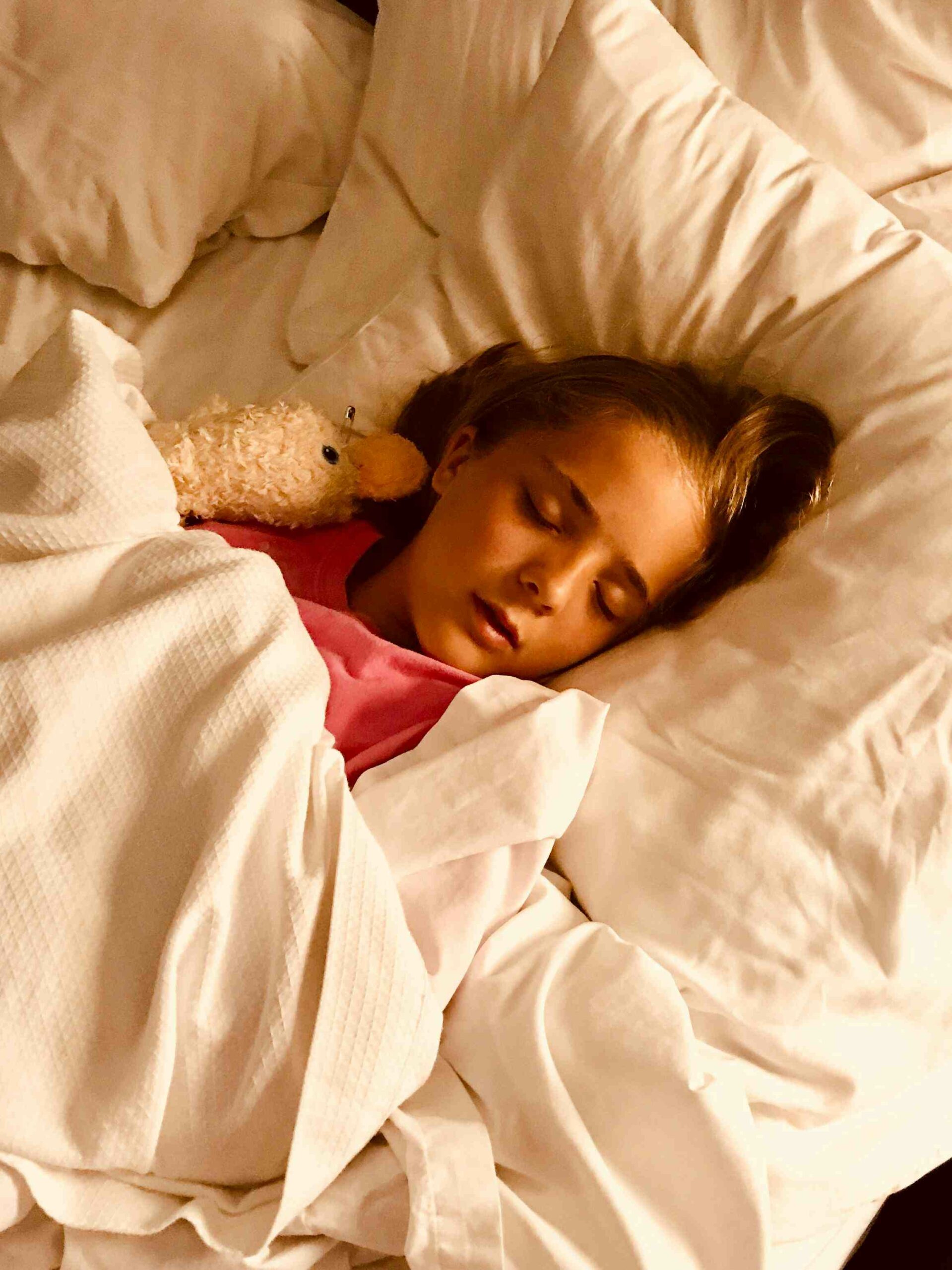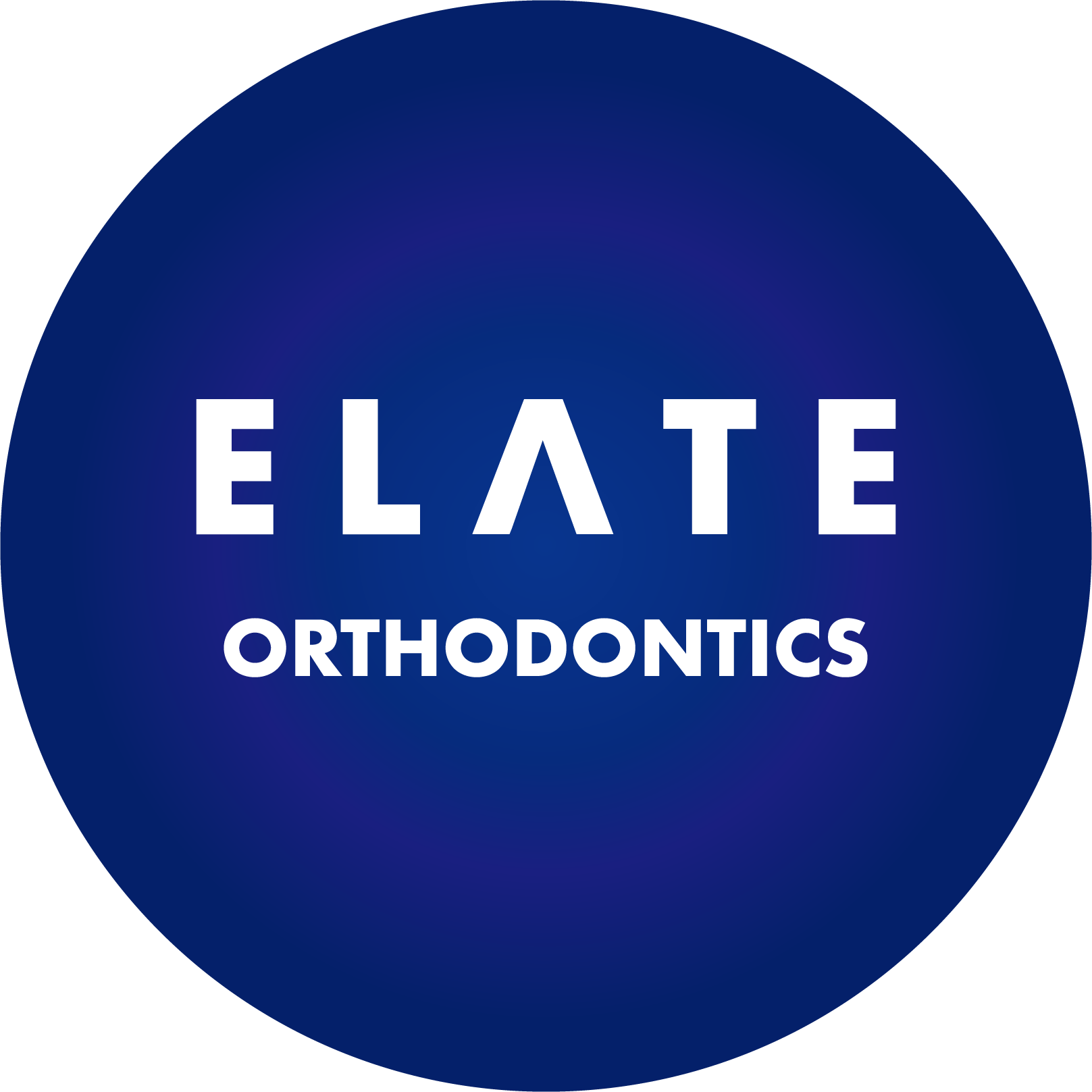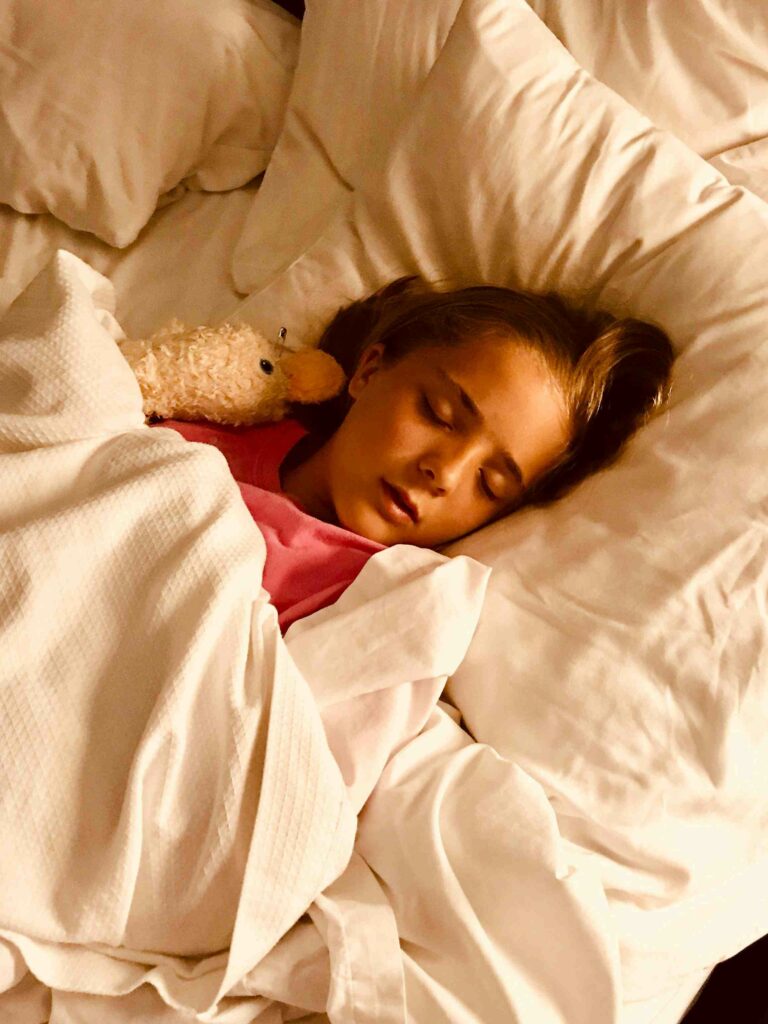
Mouth Breathing at Bedtime: Causes, Effects, and Solutions
Does your child often breathe through their mouth while sleeping? Mouth breathing at bedtime can be more than just a habit—it can affect dental development, facial structure, and overall health. In this post, we’ll explain why mouth breathing occurs, its potential impact, and how Elate Orthodontics can help.
What Is Mouth Breathing?
Mouth breathing occurs when a person primarily breathes through their mouth instead of their nose. While it can happen during the day, mouth breathing at night is especially concerning because it can go unnoticed and lead to long-term issues.
Why Does Mouth Breathing Happen?
Several factors can contribute to mouth breathing, including:
1. Nasal Obstruction
One of the most common reasons for mouth breathing is a blocked nasal passage. Causes include:
- Enlarged adenoids or tonsils (a key contributor to both mouth breathing and childhood bruxism)
- Chronic nasal congestion from allergies or sinus infections
- Deviated nasal septum
When nasal airflow is restricted, the body compensates by breathing through the mouth.
2. Habitual Breathing Patterns
For some children, mouth breathing may become a habit, even if the nasal passages are clear. This can develop from earlier periods of nasal obstruction.
3. Sleep Disorders
Conditions like obstructive sleep apnea (OSA) can cause children to breathe through their mouths during sleep. Mouth breathing may also worsen symptoms of sleep apnea, leading to disrupted sleep cycles.
Signs and Symptoms of Mouth Breathing
Mouth breathing at bedtime can be hard to detect, but there are several warning signs, including:
- Dry mouth or cracked lips upon waking
- Snoring or noisy breathing during sleep
- Restless sleep or frequent waking
- Daytime fatigue or irritability
- Crowded teeth or malocclusion (misaligned teeth)
- Long, narrow face shape with an open-mouth posture
If your child shows these symptoms, it’s important to consult an experienced orthodontist or ENT specialist for an evaluation.
The Effects of Mouth Breathing on Health and Development
Mouth breathing can have serious consequences if not addressed early. Some of the most common effects include:
1. Dental and Facial Development Issues
Chronic mouth breathing can affect the way the upper jaw, teeth, and facial bones develop. Children may develop a long, narrow face with a recessed chin and crowded teeth, which may require orthodontic intervention.
2. Dry Mouth and Increased Risk of Cavities
Mouth breathing reduces saliva flow, which is essential for neutralizing bacteria and protecting teeth. As a result, children who mouth breathe are at a higher risk of developing cavities and gum disease.
3. Poor Sleep Quality and Daytime Fatigue
Mouth breathing can disrupt normal sleep patterns, leading to restless sleep, snoring, and even obstructive sleep apnea. Children with poor sleep often struggle with concentration, mood, and performance in school.
Read more about how sleep-related issues can affect children’s dental health here.
How Is Mouth Breathing Treated?
Effective treatment depends on the underlying cause of mouth breathing. Some common treatment options include:
1. Treating Nasal Obstruction
If enlarged adenoids, tonsils, or chronic allergies are causing mouth breathing, an ENT specialist may recommend:
- Adenoidectomy or tonsillectomy to remove enlarged tissues
- Allergy management (e.g., antihistamines, nasal sprays) to reduce inflammation
- Corrective procedures for a deviated septum
2. Orthodontic Intervention
Mouth breathing can lead to misaligned teeth and improper jaw growth. Orthodontic treatments, such as palate expanders, can help widen the upper jaw and improve nasal airflow.
Learn more about how palate expanders can benefit children here.
3. Myofunctional Therapy
Myofunctional therapy involves exercises to retrain breathing and tongue posture. This therapy helps children develop healthy nasal breathing habits and can prevent long-term complications.
4. Custom Oral Appliances
In some cases, a custom oral appliance may be recommended to improve airway support during sleep. This is especially helpful for children with sleep apnea or severe mouth breathing.
Why Early Intervention Matters
The earlier mouth breathing is addressed, the better the outcomes for your child’s health and development. At Elate Orthodontics, we take a holistic approach to treatment, collaborating with ENT specialists when necessary to provide comprehensive care.
Our team has helped many young patients from Windsong Ranch Elementary, Rushing Middle School, and Prosper High School overcome mouth breathing and achieve healthier smiles. Parents often notice immediate improvements in sleep quality and overall well-being after treatment.
Discover why moms in Prosper trust Elate Orthodontics for their children’s orthodontic needs.
Schedule a Consultation at Elate Orthodontics
If your child is struggling with mouth breathing at bedtime, don’t wait to seek help. Contact Elate Orthodontics today to schedule a consultation. We’ll assess your child’s airway, dental health, and overall development to create a personalized treatment plan.
We offer convenient locations in Frisco, The Colony, and Prosper and provide flexible financing options to make care affordable for your family.

